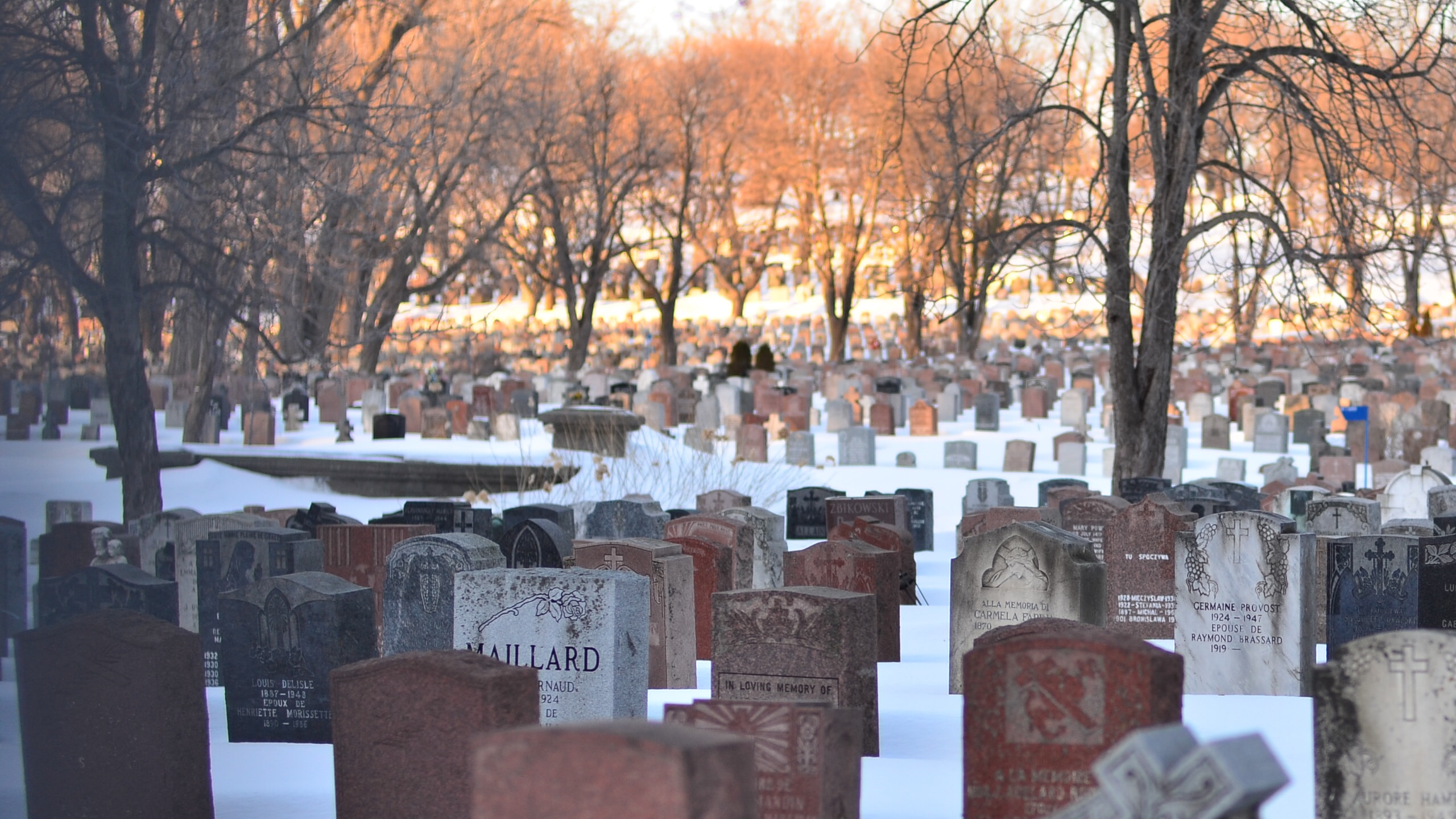
There’s a Chinese cemetery across the street from where I work, and every now and then I’ll take my break and go walk through the gravestones. As I walk around, trying to make out what I can at each site, I’m forced to a place of contemplating death—and I think this is a practice we all need more regularly in our lives. Interestingly, if the Lord tarries, death is one of the few things every single one of us will experience personally at some point. Not everyone experiences the beauty of music, the warm love of a friend, or the joyful embrace of their parents, but everyone will experience death. For this reason, it seems like we should spend more time considering death and how its certainty impacts how we live our lives now.
Under Emphasized
In our culture, we do everything we can to avoid thinking about death—at least in a positive sense. We do, however, spend a lot of time thinking about how we can delay or avoid it. We pour our money and time into gym memberships, diet plans, and self-help books in hopes of staving off death, and maximizing our enjoyment in what we know we have—this life. Our Western world is starving itself of the life-giving implications of death.
Not many of our churches these days have graveyards at the entrance, or on the grounds. Nowadays we place our dead, like the topic in general, out of the way over there. However, like the practice of having ashes placed on our foreheads on Ash Wednesday marking the beginning of the Lenten season, passing by gravesites regularly on the way in and out of the worship service serves to remind us of not only our beginning (Gen. 2:7) but our end (Ecc. 3:20).
Ironically enough, it’s a sign of life to contemplate death in this way (Ecc. 7:2). Many would rather live it up now and use the party they create out of their life as a sedative numbing them to the certainty of what lies ahead in death. Conversely, it’s when we think about death, its implications, and our Creator-God that we begin to see our perspective on the life we live now may need to change in order to conform to what ultimate reality actually is. In this way, death leads to life.
Over Stigmatized
For the Christian, death is not to be feared as the end of the story but embraced as the joy-filled beginning of eternity. Many of you are living your lives in an anxious state of not knowing. You worry about death because you believe on the last day you will stand before the heavenly throne and give a defense for your actions. God will ask you questions about motives and nuance some aspects of your obedience. Then, once you've made your case, God will deliberate and come back with a verdict—in or out.
This is a worldly mindset, not a heavenly one. The gospel tells us that in Christ, you don’t defend yourself, you have an advocate with the Father, and he’s the best legal representation you could ask for. Jesus Christ has paid your sin-debt and credited your account with his own righteousness so that when you do stand before God in the heavenly courtroom, you will see that your actual accuser is Satan, and he has no case (1 John 2:1-2, Zech. 3:1-5). This is a reality that you can live into even now. When Satan tempts you to believe that your union with Christ may have worn off, you have an advocate with you in the Holy Spirit to remind you of the security of your future because you are truly the adopted, and loved, child of God (Rom. 8:15-17).
It’s this understanding of the Christian's union with Christ that allows us to believe, with Paul, that now dying physically is actually going to be gain because we’ve died with Christ and are free to be with him forever (Phil. 1:21-23).
Appropriately Realized
For Christians, the death that really matters has already happened. You have been crucified with Christ (Gal. 2:20). Having been buried with him you also have the security of knowing that you will be raised with him (Rom. 6:3-11). The physical death you will someday succumb to is not the full truth of the matter. The reality is: once in Christ, death can’t stick.
With this in mind, run hard in this life. As it did for Paul, life now means the continuing opportunities of fruitful labor for the joy and progress in the faith of others to the glory of God (Phil. 1:22, 25-26). The worldly view would have you toiling now to enjoy only this life because if this is all there is, then you should live life and put death out of mind—over there. But the gospel brings death in front of us, and compels us to work hard in this life for the kingdom’s sake because of what we know death isn’t—the end.
We’ll all end up among the dead. Cemetery walks help me to put that in perspective, and remind me of the firm hope provided in Christ that sin has been atoned for and death has been defeated. The promise of Christ about death is the resurrection. We too will be raised to new, physical, life with Christ. Our physical bodies will go into the tomb, but having already died to sin in Christ through faith, we can embark upon death with the sure confidence that the grave cannot keep what it does not own.

